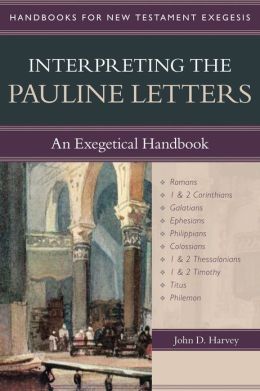The following study of Galatians 1:8-9 is drawn from my Gospel Dictionary Online Course, which defines 52 key words of the Gospel, and considers hundreds of texts from the Bible related to these key terms. See details at the bottom of this article for how you can take the entire course. Here is a video that provides the basic answer to what Paul is saying in Galatians 1:8-9.
In Galatians 1:8-9 Paul calls down anathema on any person or teacher who presents a different gospel than the one he himself taught when he was among the believers in Galatia. Paul is so emphatic he says this not once, but twice in these two verses.
The Galatian believers have abandoning the gospel of grace which Paul taught to them, and have instead turned to a gospel of works, which is no gospel at all (cf. Galatians 1:7). So as Paul sits down to write this letter of correction to the Galatians, he begins in Galatians 1:8 by saying that anyone who preaches something different than what he preached, let them be accursed; let them be anathema.
 Among those who knew Paul, such a statement would have been shocking. Paul does not go around cursing people. So Paul, knowing that his statement would have caused the readers in Galatian to scratch their head and wonder if they were hearing him correctly, repeats himself in Galatians 1:9.
Among those who knew Paul, such a statement would have been shocking. Paul does not go around cursing people. So Paul, knowing that his statement would have caused the readers in Galatian to scratch their head and wonder if they were hearing him correctly, repeats himself in Galatians 1:9.
Christians have used Galatians 1:8-9 to justify cursing others to hell
These two verses by Paul have caused so much bad behavior by Christians over the years.
Back during the Reformation, the Reformers pronounced anathemas on the Catholics, and the Catholics pronounced anathemas on the Reformers.
In more recent years, it is not at all uncommon to hear some Christian go around pronouncing curses and condemnation on people, and when you challenge them about their unloving behavior, they quote Galatians 1:8-9 and say, “Paul cursed people for the sake of the gospel; so can we.”
What did Paul mean in Galatians 1:8-9 when he announced an anathema on others?
You are about to learn that this way of reading Paul’s message in Galatians is completely wrong. I will show you a key to understanding Galatians that will allow you to read the Galatians in a whole new light.
You will not only understand the book more than ever before, but will also smile a little bit when you read his anathemas here in Galatians 1:8-9. You will understand why Paul states this anathema twice in these verses, and why we can never, ever, ever curse or condemn people who disagree with us, because, as we will see, that is not what Paul is doing either.
While it is tempting once again to see in these statements a vindictive Paul calling down a death curse upon his theological opponents, we must understand that such behavior does not fit the wider thought and theology of Paul.
What Paul writes in Galatians 1:8-9 must be understood in light of the wider context of this letter as a whole.
Galatians 1:8-9 in the context of Galatians
Let me give you a little hint right now about how to read this letter. If you want to read Galatians properly, you need to read it with a little smirk on your lips. You need to read it with a twinkle in your eye. You need to read it with a half-smile and a wink.
Why?
Because that is what Paul was doing when he wrote this letter. If you can read Galatians with the idea that Paul was writing with a somewhat sarcastic, or ironic, tone of voice, the letter will make a whole lot more sense to you.
Oh, and by way of fair warning, the explanation of Galatians 1:8-9 below is rated PG-13.

Let us begin by looking at a later “curse” that Paul pronounces on the teachers in Galatia with whom he disagrees.
In Galatians 5:12, Paul states his wish that those teachers who make circumcision a requirement for new believers would just go ahead and emasculate themselves entirely. Paul’s theological satire is quite evident. The teachers in Galatia were arguing that if believers in Jesus really wanted to please and obey God, faith in Jesus was not enough; men needed to also get circumcised.
So in Galatians 5:12, Paul, with a little smirk on his lips, argues that if God is pleased with us when men cut off part of their penis, maybe God will be even more pleased if men cut off the whole thing!
You have to love Paul, for only Paul can use a penis to make a theological point.
But what exactly is that point?
Well, the issue of circumcision is not just about pleasing God. The issue is much larger.
 Under the Mosaic Law, circumcision was a sign of separation. It was a sign that only the circumcised were part of the people of God. Only the circumcised were the “insiders” with God. Everybody else was an “outsider.” Circumcision then, was a way of dividing humanity. It was “us vs. them.”
Under the Mosaic Law, circumcision was a sign of separation. It was a sign that only the circumcised were part of the people of God. Only the circumcised were the “insiders” with God. Everybody else was an “outsider.” Circumcision then, was a way of dividing humanity. It was “us vs. them.”
Yet one central themes of Paul’s letters is that in Jesus Christ, all such divisions have been dissolved. There is no more wall separating insiders from outsiders (Ephesians 2:11-22). In Jesus Christ, all are insiders.
So when certain Christians in Galatia began to make circumcision a requirement for fellowship once again, Paul saw it as a return to divisions and a rebuilding of walls. This was to live not according to the Spirit but according to the flesh (Gal 5:16-26), especially since, in more ways than one, circumcision was of the “flesh.”
The factions, divisions, and lusts that were present in the community were further signs that some in Galatia were living according to the flesh rather than according to the Spirit. The pressure to get circumcised was creating an atmosphere of some men comparing his “flesh” to that of others to see who was more spiritual.
But such comparisons are not spiritual, but fleshly. To put it bluntly, Christians were comparing dicks to see who was more spiritual. Paul’s criticism is that the entire argument is “fleshly” and he wants it to stop. For Paul, this whole argument is ridiculous.
N. T. Wright explains it a little more circumspectly:
The opponents, after all, whoever they were, were seeking to establish a way of being, a grand story, a form of knowing, a type of identity, upon the converts. The pressure to get circumcised was precisely an insistence on establishing one kind of ethnic or para-ethnic identity over against others. Paul deconstructs these claims, showing that they themselves are dehumanizing, based on “the flesh.”
It really is quite a humorous argument when understood.
Paul’s letter to the Galatians has a whole different feel if you understand that Paul wrote it with a smirk instead of a scowl.
Paul had a sense of humor after all!
Paul is writing about “the flesh” in Galatians
This imagery of “the flesh” is found throughout this letter. The image of the sowing with the flesh in Galatians 6:8 and making a good showing in the flesh in Galatians 6:12 as two further examples.
The “flesh” (Gk. sarx) is the word used to translate the Hebrew word for “flesh” (basar) which is often used in the Hebrew Scriptures as a euphemism for the male sexual organ.
This understanding gives us a completely different reading of Galatians 1:8-9, especially when we remember that the word anathema is exactly equivalent to the Hebrew concept of cherem. In Israel, only outsiders were under cherem, and circumcision was one of the defining characteristics used to separate the insiders from the outsiders. This is why it was so important for all male Israelites to get circumcised before they entered into Canaan (Joshua 5:3-7).
Yet in Jesus Christ, all of these divisions and separations had been done away with and set aside.
 Paul’s message in Galatians is that Golgotha has done away with Gibeath-haaraloth, the hill of foreskins (Josh 5:7).
Paul’s message in Galatians is that Golgotha has done away with Gibeath-haaraloth, the hill of foreskins (Josh 5:7).
There is no longer any “us vs. them” or “insiders vs. outsiders.” Paul is now saying if we demand circumcision, we are only going back to that old way of dividing the world between insiders and outsiders.
But the reality is that, through Jesus, we are all insiders. The only real outsiders are those who claim that they are insiders and everyone else is an outsider. If you do that, then you are an outsider, and this places you under cherem, under anathema.
When Paul introduces his letter to the Galatians, he is not calling down judgment and condemnation upon his theological opponents. Instead, he is saying that if they are right in what they teach, then we must go back to the old way of dividing the world, and if we do that, then they will be cherem, anathema. Nobody wants that, including Paul, so he calls them to return once again to the gospel he preached to them, which is the gospel of inclusion and embrace.
Paul closes out his letter with a call for peace and mercy (Galatians 6:16) and that we “do good to all, especially to those who are of the household of faith” (Galatians 6:10).
We must not think that Galatians begins with a curse ends with a blessing.
Paul has been blessing his readers all the way throughout, while using irony, sarcasm, humor, and even sexual innuendos to point out the error of their ways.
 Understanding the Gospel requires us to properly understand the key words and terms of the Gospel. Take my course, "The Gospel Dictionary" to learn about the 52 key words of the Gospel, and hundreds of Bible passages that use these words.
Understanding the Gospel requires us to properly understand the key words and terms of the Gospel. Take my course, "The Gospel Dictionary" to learn about the 52 key words of the Gospel, and hundreds of Bible passages that use these words.
This course costs $297, but when you join the Discipleship group, you can to take the entire course for free.



 The letter of 1 Corinthians is focused around some issues and questions that had arisen in the Corinthian church. When Paul sets out to address the other issues and questions, he begins with a short summary of what the issue or question was (cf. 1 Cor 7:1; 8:1; 16:1). Chapters 12–14 deal with the issue of spiritual gifts, and ultimately, the gift of speaking in tongues (1 Cor 14), and so 1 Corinthians 12:1-3 is apparently the opening summary statement of what issue or question the Corinthian Christians were facing.
The letter of 1 Corinthians is focused around some issues and questions that had arisen in the Corinthian church. When Paul sets out to address the other issues and questions, he begins with a short summary of what the issue or question was (cf. 1 Cor 7:1; 8:1; 16:1). Chapters 12–14 deal with the issue of spiritual gifts, and ultimately, the gift of speaking in tongues (1 Cor 14), and so 1 Corinthians 12:1-3 is apparently the opening summary statement of what issue or question the Corinthian Christians were facing. Paul spends much of his time in his letter arguing the exact opposite. In fact, this is partly why Paul goes on in 1 Corinthians 15 to argue about the physical resurrection of Jesus. Paul wanted to show that the physical world, and our physical bodies, were not inferior to the spiritual, but were partnered with the spiritual to accomplish God’s will in this world (John argues against similar beliefs in 1 John).
Paul spends much of his time in his letter arguing the exact opposite. In fact, this is partly why Paul goes on in 1 Corinthians 15 to argue about the physical resurrection of Jesus. Paul wanted to show that the physical world, and our physical bodies, were not inferior to the spiritual, but were partnered with the spiritual to accomplish God’s will in this world (John argues against similar beliefs in 1 John).

 When Paul writes about being anathema from Christ, he is not stating a desire to be eternally cut off or separated from Jesus, but is instead stating his desire, if it were possible, to give up his life and his ministry within the Kingdom of God if such a sacrifice would help Israel come to the knowledge that Jesus is the Messiah.
When Paul writes about being anathema from Christ, he is not stating a desire to be eternally cut off or separated from Jesus, but is instead stating his desire, if it were possible, to give up his life and his ministry within the Kingdom of God if such a sacrifice would help Israel come to the knowledge that Jesus is the Messiah.

 Both the Jews and the Romans had hopes and dreams for what would happen at the end of days. Pate shows that Paul wrote to reveal how Jesus fulfills and completes these hopes and dreams.
Both the Jews and the Romans had hopes and dreams for what would happen at the end of days. Pate shows that Paul wrote to reveal how Jesus fulfills and completes these hopes and dreams. 

